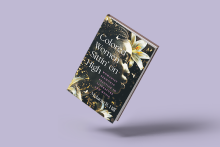black preachers

MELANIE R. HILL’S Colored Women Sittin’ on High is a love letter to Black women preachers. “From the cradle, I was surrounded by Black women preachers,” she writes. “Black women who prayed, Black women who preached and prayed, Black women who laid their hands on me and prophesied a destiny full of hope and fulfilled dreams.” For Hill, womanist sermonic practice isn’t confined to just the pulpit. These preachers include the aunts and grandmothers, artists and activists who have “created a healing and restorative space beyond the four walls of the church for the surrounding community and region.”
Hill, an assistant professor of both global racial justice and American literature at Rutgers, utilizes Alice Walker’s definition of womanism as laid out in In Search of Our Mothers’ Gardens, focusing closely on how womanists are “committed to survival and wholeness of entire people.” She addresses the ways that womanism and Black women’s literature have informed the work of Black women preachers, attending to their voices in what she terms “womanist sermonic practice.” Through this practice, Black women preachers demonstrate how to love ourselves and the Black bodies that we inhabit and how to love others and fight against systems of oppression.
WASHINGTON — The 200 or so African-American pastors gathered here for the Conference of National Black Churches feel strongly about the topic of gay marriage, some for, many against. But there's one thing nearly all of them agree on.
The issue won't distract black voters from supporting President Obama's reelection.